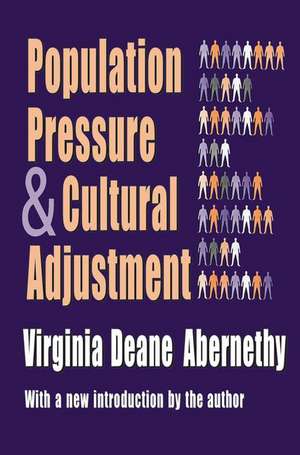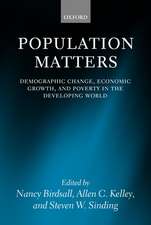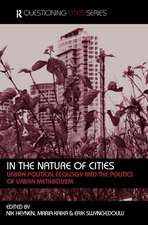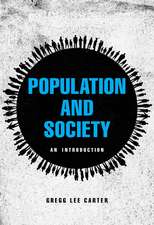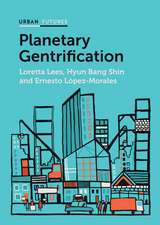Population Pressure and Cultural Adjustment
Autor Virginia Deane Abernethyen Limba Engleză Hardback – 8 iun 2018
| Toate formatele și edițiile | Preț | Express |
|---|---|---|
| Paperback (1) | 297.79 lei 6-8 săpt. | |
| Taylor & Francis – 31 mai 2005 | 297.79 lei 6-8 săpt. | |
| Hardback (1) | 764.20 lei 6-8 săpt. | |
| Taylor & Francis – 8 iun 2018 | 764.20 lei 6-8 săpt. |
Preț: 764.20 lei
Preț vechi: 1027.43 lei
-26% Nou
Puncte Express: 1146
Preț estimativ în valută:
146.25€ • 152.12$ • 120.74£
146.25€ • 152.12$ • 120.74£
Carte tipărită la comandă
Livrare economică 15-29 aprilie
Preluare comenzi: 021 569.72.76
Specificații
ISBN-13: 9781138530515
ISBN-10: 1138530514
Pagini: 202
Dimensiuni: 152 x 229 x 16 mm
Greutate: 0.45 kg
Ediția:1
Editura: Taylor & Francis
Colecția Routledge
Locul publicării:Oxford, United Kingdom
ISBN-10: 1138530514
Pagini: 202
Dimensiuni: 152 x 229 x 16 mm
Greutate: 0.45 kg
Ediția:1
Editura: Taylor & Francis
Colecția Routledge
Locul publicării:Oxford, United Kingdom
Cuprins
1: The Theory of Population Homeostasis; 2: Measures of Scarcity; 3: Sociocultural Mechanisms Which Limit Population; 4: The Evidence: Its Quality, Order of Presentation, and Material From Nonwestern Societies; 5: The Sensitivity of Self-Contained Societies, and Other Sources of Evidence; 6: Delayed Response to Population Pressure; 7: Fertility Trends and Homeostatic Mechanisms in The United States; 8: Conclusion
Descriere
Integrating research from anthropology, biology, and history, this provocative, brilliant book proposes a theory of demographic equilibrium. The author's hypothesis is that human beings, like many other species, are able to adjust their population numbers to the carrying capacity of the environment.
